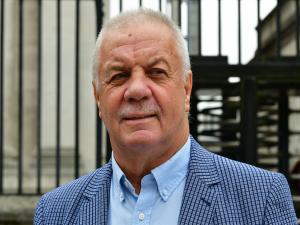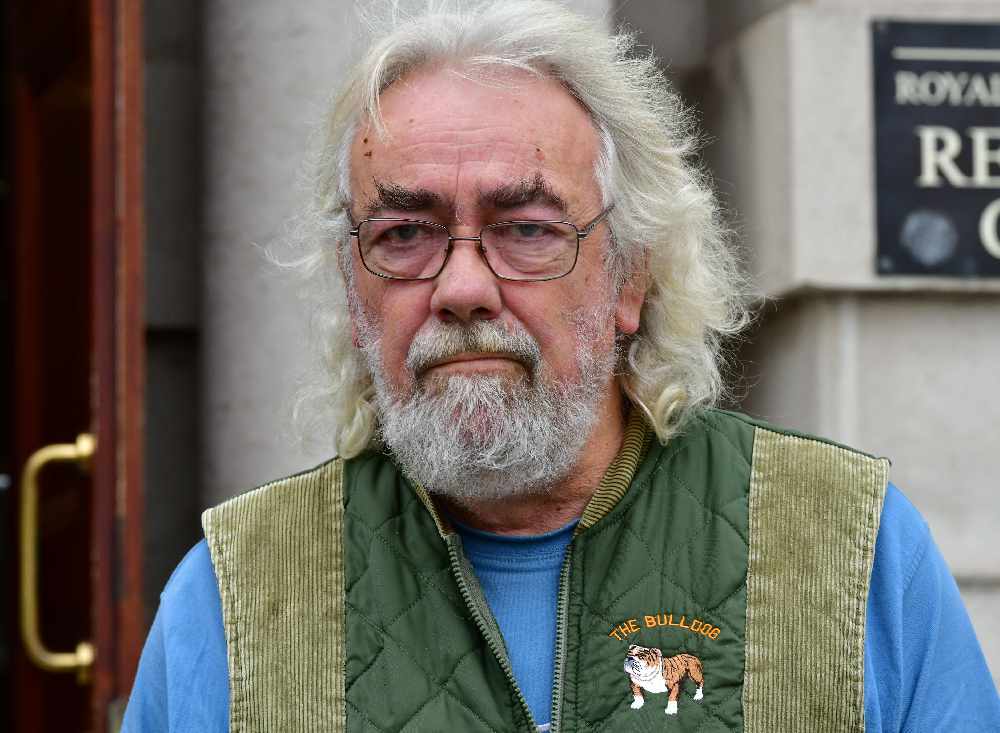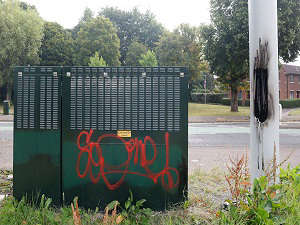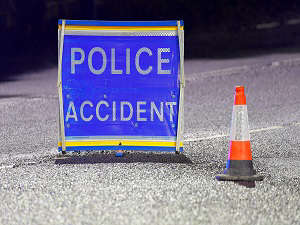
By David Young, PA
Courts in Northern Ireland should be prepared to sit during the night and on weekends to ensure a challenge against a no-deal Brexit is heard, a judge was told.
A barrister for victims' campaigner Raymond McCord said it was vital his case was concluded within two weeks, so the judgment could be examined by the Supreme Court later this month, when the UK's highest court is set to arbitrate on challenges being taken in England and Scotland against the prorogation of Parliament.
Ronan Lavery QC said Northern Ireland was "central" to the Brexit process, warning that a no deal could "wreck" the region.
He urged legal colleagues to put their "shoulder to the wheel" and consider sitting into the night and over the weekend to get the case heard.
"It's vital that our Northern Ireland case is heard concurrently with those in England and Scotland," he said.
"And we don't just sit by in Northern Ireland watching England and Scotland determine what's going to happen here. We need to have a say in it."
Proceedings in Mr McCord's case in Belfast High Court were interrupted on Tuesday morning when Chris Carter, a Co Down man who once unsuccessfully challenged Northern Ireland's smoking ban, asked to address the court.
Mr Carter went on to accuse those attempting to challenge the prorogation of Parliament of committing "high treason" against the Queen.
Mr McCord, and two other applicants, are challenging the Government's handling of the Brexit process. The cases are due to be heard as one.

(Victims campaigner Raymond McCord alongside solicitor Ciaran O'Hare)
The campaigner, whose son Raymond McCord Jnr was murdered by loyalists in 1997, had initially sought a discrete interim relief hearing to challenge the prorogation of Parliament.
Mr Lavery agreed with judge Mr Justice Bernard McCloskey on Tuesday that the need to hear his client's wider case on Brexit as soon as possible meant it would be impractical to have a separate hearing on the parliamentary suspension beforehand.
Justice McCloskey said a provisional date of September 16 for the rolled-up hearing involving the three applicants would need to be brought forward.
The judge told the court that he had received notice from the Supreme Court of its intent to examine the outcome of the Scottish and English challenges against prorogation on September 17.
Justice McCloskey noted that the cases in Great Britain could be "leap frogged" to the Supreme Court after judgments were handed down, without having to go through the Court of Appeal first.
He said that did not appear to be an option with the Northern Ireland cases, which would have to go before Appeal Court judges before going to the Supreme Court.
The judge said securing a hearing and judgment in the High Court and then a hearing and judgment in the Appeal Court, all within two weeks, would be "almost miraculous".
Mr Lavery insisted it could be done, if the will existed.
"It's a tight time scale but it's not impossible," he said.
"It's achievable if we all put our shoulders to the wheel."
He stressed the importance of the Supreme Court hearing the Northern Ireland-focused cases.
"A no deal will wreck Northern Ireland," he claimed.
"Any balanced, sane commentator or person on the street knows that. We need to have our voice heard in the highest court in the UK, an equal voice."
Mr Lavery said the lack of government at Stormont made the role of the courts even more important.
"The only pillar of government left in Northern Ireland is the courts," said the barrister.
In an apparent reference to independent unionist MP Lady Sylvia Hermon, Mr Lavery said the region had only one voice in Westminster advocating a "sensible position" of exiting the EU with a deal.
Of the region's other 17 MPs, the 10 Brexiteer DUP representatives back Boris Johnson's insistence on keeping a no deal on the table, while the seven Sinn Fein MPs do not take their seats.
There was legal debate on Tuesday whether the Northern Ireland cases should deal with the prorogation issue, or leave that matter to the English and Scottish cases and focus the hearing in Belfast on Brexit issues specific to the region.
That argument was forwarded by Government barrister Dr Tony McGleenan QC.
"There is no compelling need for this court to grapple again with the prorogation issues," he said.
Mr Lavery disagreed, arguing that it would be "artificial" and "unhelpful" to remove the prorogation issue from the cases.
The hearing was also told that the region's Attorney General John Larkin QC intended to make submissions during the substantive hearing on devolution issues.
Judge McCloskey said he would sit again on Wednesday afternoon to consider when to list the full case and what issues it should hear.

(Co.Down man Chris Carter)
Just before proceedings concluded, Mr Carter spoke from the back of the court and asked to address the judge.
He walked to the front and claimed a criminal offence, namely high treason, was about to take place and he had a duty to inform the judge.
Mr Carter, from Bangor, said any challenge against prorogation would be a direct challenge to the Queen, given she had given her assent to Mr Johnson's move.
He said anyone who thought the Queen did not know what she was doing, or had not given the Prime Minister's request due consideration, was living on "cloud nine".
"I'm not going to see someone destroy an institution over this matter, which I have to say is a political matter," he told the judge.
"If this does go on it's going to turn into an act of high treason against her Majesty."
Mr Carter presented a document to the judge. Justice McCloskey said he would read the paper and circulate it to the lawyers in the case.


 Spate of 5G mast attacks impacting hospital communications
Spate of 5G mast attacks impacting hospital communications
 Campaign launched to combat rise in online sex offences against children in NI
Campaign launched to combat rise in online sex offences against children in NI
 Arson attacks on Belfast 5G phone masts ‘extremely reckless’, say police
Arson attacks on Belfast 5G phone masts ‘extremely reckless’, say police
 Man dies in hospital after fall from electric scooter
Man dies in hospital after fall from electric scooter
 Slight rise in A* and A grades achieved in A-levels in Northern Ireland
Slight rise in A* and A grades achieved in A-levels in Northern Ireland